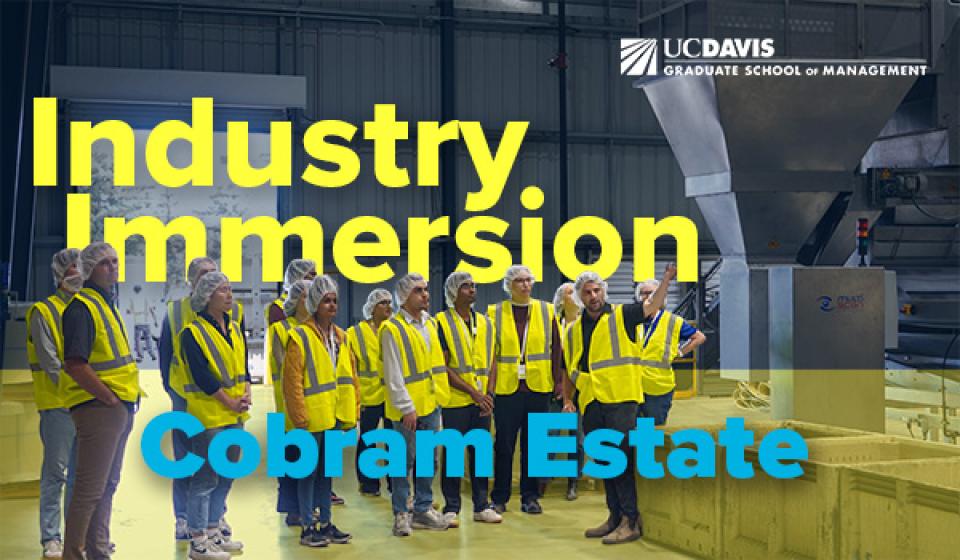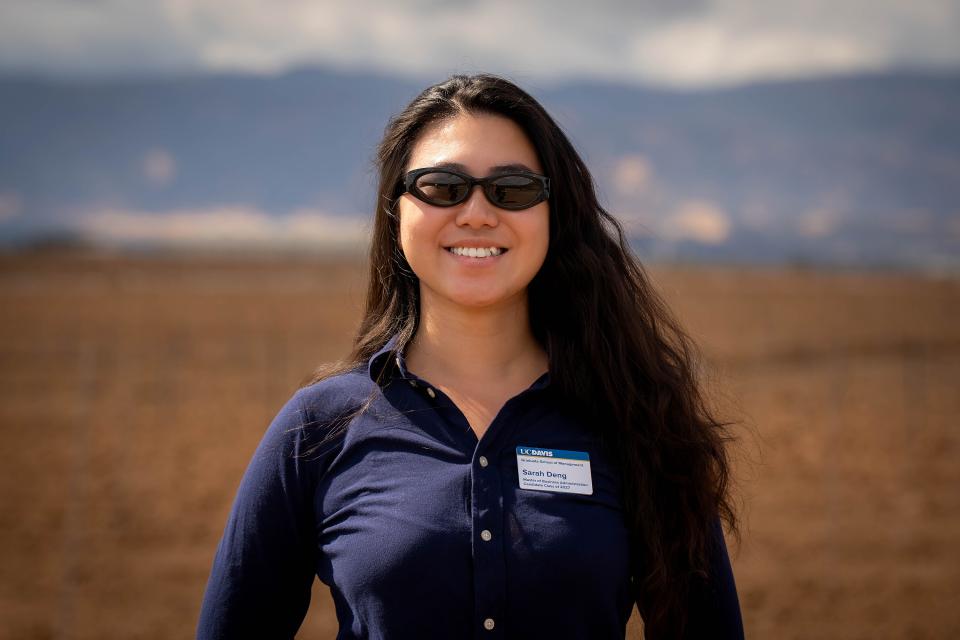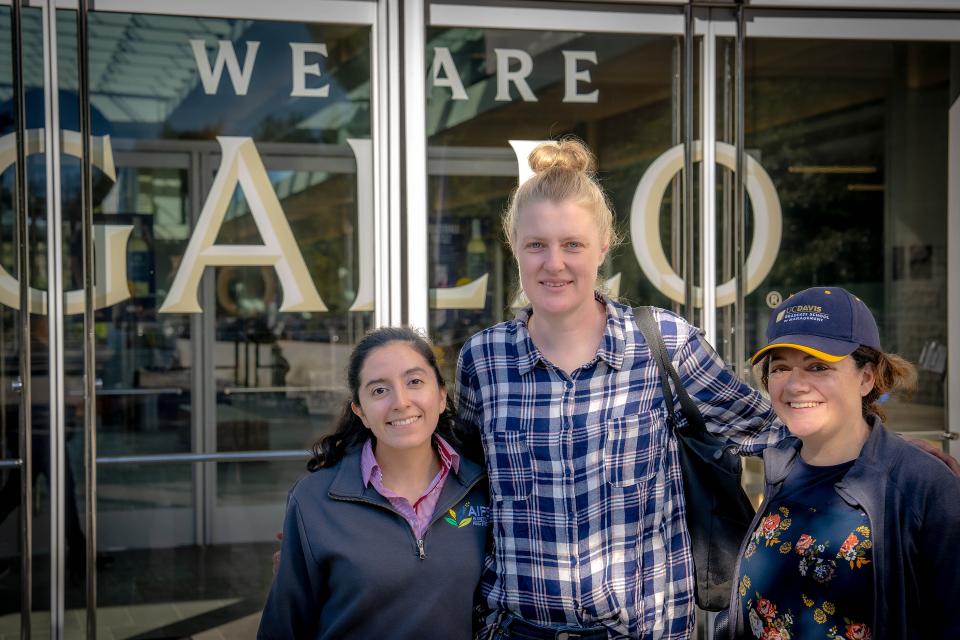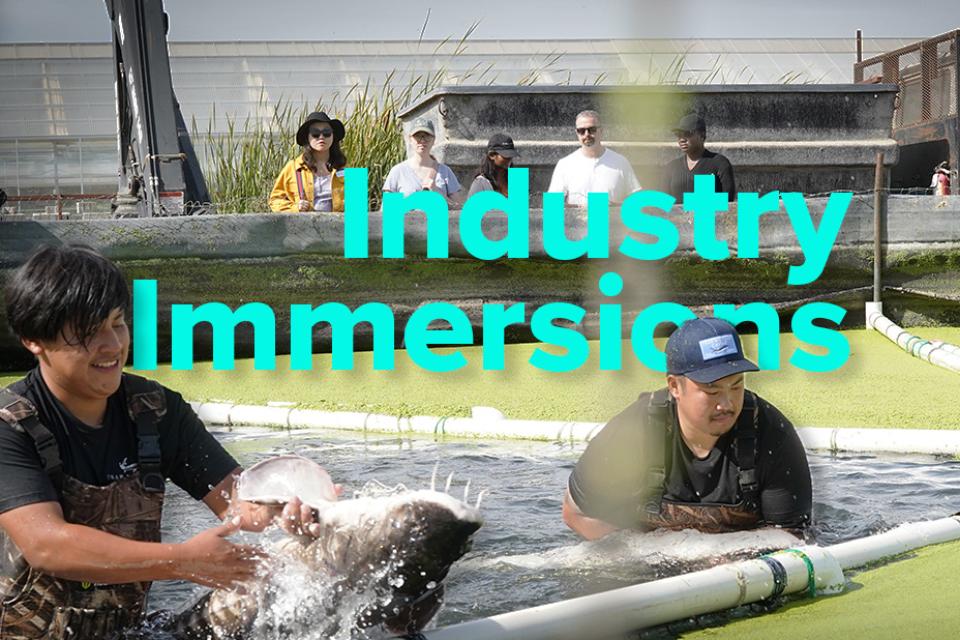Food & Ag Industry Immersion Students Tour Cobram Estate Olive Oil Facility
View video of one of world’s largest fully vertically integrated olive oil producers.

UC Davis MBA students recently experienced every step of the olive oil business on an exclusive tour of the Woodland, Calif., operations of Cobram Estate Olives—one of the world’s largest fully vertically integrated olive oil producers.
From international groves to bottle, Cobram Estate oversees every stage of production—nurseries, orchards, harvesting, milling, labs and marketing—ensuring quality every step of the way. UC Davis MBA students in the Food & Ag Industry Immersion visited the California operations to experience firsthand how business strategy, sustainability, and innovation come together in the premium olive oil industry.
“Coming to the Cobram Estate and touring the facility, talk to the leaders here, got me a foot through the door, and give me a really great insights into the food and agriculture business, especially the olive oil industry right now in California,” said MBA student Sarah Deng. “I did not come from that background. I'm hoping to go into the food and agriculture technology industry.”
Learn how this field visit connects classroom lessons to real-world applications, inspires future careers in agtech, and highlights the complexity and opportunities within a fully integrated agribusiness.
Video Transcript
Leandro Ravetti
Co-CEO, Technical and Production, Cobram Estate
Cobram Estate Olives is one of the largest fully vertically integrated olive oil companies in the world. Originally founded in 1998 in Australia, operating in California since 2014. We have that fully vertically integrated approach, including nurseries, our own orchards, harvesting technologies, milling, laboratories and also our own brand. So we really follow the product all the way through, from the groves to the retailers and the final consumers, to your pantry.
Sarah Deng MBA 27
Coming to the Cobram Estate and touring the facility, talk to the leaders here, got me a foot through the door, and give me a really great insights into the food and agriculture business, especially the olive oil industry right now in California. I did not come from that background. I'm hoping to go into the food and agriculture technology industry and to be able to speak to industry leaders.
Leandro Ravetti
Co-CEO, Technical and Production
Cobram Estate
With the visit that we are having from the students from UC Davis, what we hope is that they achieve, or they get the view of how a fully vertically integrated business across multiple points around the globe can actually operate—how our decision making works in terms of deciding on investments and strategies and also the decisions about if you take the land component as part of the overall decision process, or if you just focus specifically on the products.
And then with the complexities that come with managing a fully vertically integrated company that brings a lot of positives from the point of view of efficiency, but certainly also brings a lot more complexity from the point of view of the different skills that are needed from planting developing orchards to managing those orchards, to then converting the product’s through and a relatively industrial process all the way through marketing and sales, as well as the financial aspects of the business.
Justin Smith
Vice President, Business Development and Industry Relations
Cobram Estate
Full integration is important because really, what drives the quality of that product is how it's managed from the time it's planted through to the time that it's bottled and shipped. And so having the ability to control that process really helps ensure that the product that's being sold matches the quality and the premium standing that it has in the market.
The value that the students get from this is that they get to come out here. And aside from just seeing that product on the shelf, they get to see from start to finish how that product’s made—all the hands that are involved there and all the different roles that go along as far as different job opportunities, ways to understand the different processes that can help them down the road, consulting, different career opportunities that they might be interested in, industry connections and just really expanding their understanding of what's available in this whole supply chain for food business.


